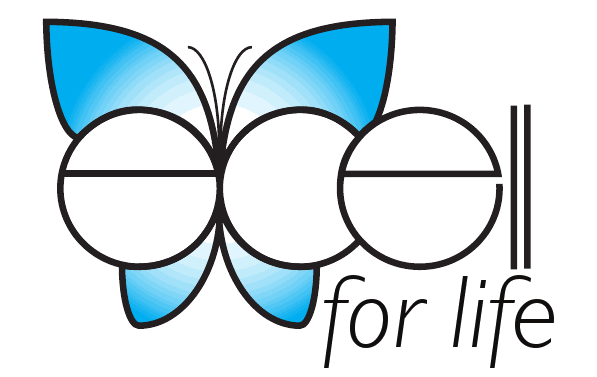Foods that Fight Pain by Dr. Neal Barnard
Back pain is the second most common reason for doctor visits in the U.S., and up to 84% of adults have back pain at some time in their lives. Most episodes of back pain are self limited and resolve without specific therapy (usually muscle/ligament sprain/strain). Patients who do not improve within four weeks of onset of back symptoms should be re-evaluated and may require further diagnostic testing (first plain x-rays, and then may need MRI’s). Some people have chronic back pain that interferes with employment and quality of life, and rarely back pain can be from a serious medical illness (infection, cancer, fracture, or systemic disease). RISK FACTORS of back pain are – smoking, obesity, older age, female gender, physically strenuous work, sedentary work, low education, anxiety/depression, vibration exposure (even from certain automobiles), and now evidence that certain foods may contribute.
The book “Foods That Fight Pain” by Dr. Neal Barnard gives excellent information on especially dietary treatment for back pain, and other causes of pain and medical problems (and many excellent recipes). His recommendations are included under the Dr. Barnard recommendations below.
Self Care – very important for all to remain active, get proper sleep/rest (at least 7-9 hours/night), and maintain good muscle tone/physical fitness and posture (especially important when working at a computer to keep your neck and back properly aligned)
a medium firm back conforming mattress may help, and there is no compelling evidence lumbar supports help
cool/ice after injury for first 48 hours, then heat or cool (Thermacare wraps are effective), certain OTC creams like Bengay or Tiger Balm can help
Medicine Options
Pain medicine (Tylenol/acetominophen, non steroidals like Advil/ibuprofen or Aleve/naproxen and available in patches like Flector Patch, Ultram/tramedol, and narcotic pain medicines such as Darvocet/Tylenol w Codeine/Vicodin=hydrocodone, Lidoderm/lidocaine patches)
Antidepressant/anti-anxiety medicines (Elavil/amitriptyline, trazedone, Prozac/Zoloft/Celexa/Lexapro)
Skeletal muscle relaxants (Flexeril/cyclobenzaprine, Skelaxin, Soma/carisoprodol)
Benzodiazepines (Valium/diazepam)
Anti-Seizure medicines (Neurontin/gabepentin)
Activity & Physical Treatments-in addition to self care, all patients need regular physical activity
Exercise therapy (stretching exercises, core strengthening, general physical fitness, yoga and Pilate’s)
Physical therapy/back schools – to direct back rehabilitation
Spinal manipulation – usually from a good chiropractor (Dr. Ed Zimmer and Abigail Eaton are excellent chiropractors and nutritionists in our office complex, 813-1998, and I see Dr. Zimmer about monthly to keep from having neck/back pain)
Acupuncture (Amy Yang is excellent, 876-1054)
Massage (excellent masseuse is Josh at 872-3380 – I see him for a 1 hour Swedish massage about monthly to keep from having neck/back pain)
Psychological Interventions
Cognitive behavioral therapy, biofeedback – from trained therapists
Physical Modalities – used by some physical therapists or chiropractors or osteopaths
low laser therapy
ultrasound
short wave diathermy
traction
trans cutaneous electrical nerve stimulation (TENS)
Medical/Physician Treatments (Community Spine Center and Dr. Foley and his associates are great back and spine specialists for consultation, 621-9292)
epidural steroid injections
facet joint steroid injections
trigger point steroid injections
sacroiliac steroid injections
surgery – discectomy, fusion surgery, laminectomy
thermal/laser/radiofrequency treatments
Dr. Barnard Recommendations
He feels that back pain starts not in the muscles or spine but in the arteries supplying them/the lumbar arteries – Japanese-American women eating the traditional Japanese diet (rich in the first 4 food groups listed last blog and very low in animal products) have half the risk of back pain as Caucasian women – an optimal diet helps keep arteries open and helps prevent weight problems, arthritis, and osteoporosis which are all linked to back problems
See your doctor (to make sure not a more serious condition and for help on the things listed here)
Follow an artery opening diet (low fat mostly vegetarian as in his book and following the first 4 food groups in my previous blog-drawing your nutrition from plant sources helps clear arteries and keep calcium in your bones), regular exercise, no smoking, and manage stress
No more than 2 cups of coffee/day (or switch to decaf) and limit salt use
Follow a regular exercise program – exercise reduces pain, strengthens back muscles, helps open arteries, and protects your bones and more!
Vitamin B6 (50-150mg/day) and powdered Ginger (1/2-1 tsp/day) may help with pain
Chiropractic adjustments can help
Be cautious about surgery and get a second opinion
Simple pain killers (like Tylenol or ibuprofen) can be helpful, but it is best to avoid narcotics to avoid the chance of addiction
